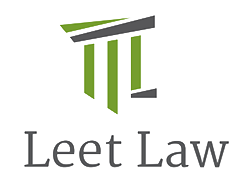Intellectual Property Attorneys in San Jose, California
If you're starting or operating a business, you're probably somewhat familiar with the legal concept of intellectual property. As opposed to real property, such as buildings and vehicles, intellectual property is generally something you create that's unique to your business, like the golden arches forming an "M" for McDonald's. It may be a slogan, symbol, or single word you use.
How do you protect your intellectual property from being expropriated by others for their personal gain, perhaps to rob business and customers from you?
There are four ways: patents, copyrights, trademarks, and trade secrets.
If you're operating or beginning to operate a business in or around San Jose, California, or nearby in San Francisco, Oakland, Palo Alto, and the surrounding cities and communities, and you want to protect your intellectual property, contact Leet Law. Since 2005, we have been helping businesses protect their assets in a super-competitive world.
Understanding Intellectual Property
Intellectual property, or IP, is a legal term for creations of the mind that are legally protected through the use of copyrights, patents, trademarks, and trade secret laws. Common examples include books, sculptures, designs, discoveries, logos, phrases, symbols, software, and even words.
Each of the four legal protections requires different procedures to be in effect.
Trade Secrets Law in California
As have many states, California has adopted the Uniform Trade Secrets Act (UTSA), which was compiled by legal experts as a model code. The California version, adopted in 1984, contains its own unique aspects, but it largely follows the UTSA.
The California law defines a trade secret as "information," but the information must be "a formula, pattern, compilation, program, device, method, technique, or process" that:
- Derives independent economic value from not being generally known by others and is not reasonably and independently ascertainable by another party
- Is the subject of "reasonable efforts" to maintain its secrecy
The key here is "reasonable efforts" to protect your proprietary information, which can be done by limiting its access and requiring employees to sign nondisclosure agreements so they can't take your trade secret to a competitor upon leaving.
Trademarks
Anyone can use a trademark, and it requires no official registration. If you call your business Pathway to Success, you can add a trademark symbol after it, and it will be protected under what is called Common Law Trademark Rights. Thereafter, Pathway to Success™ will be protected in the area in which you operate, but someone in Illinois can use the name without any violation of your rights since they're not located near you.
California allows you to register a trademark, giving it legal protection throughout the Golden State and not just in the particular city or area where you're located.
The use of TM is usually a prelude to seeking a registered - Circle R (®) - mark with the U.S. Patent and Trademark Office (USPTO), which affords you nationwide legal protections for your logo, brand name, or slogan.
Patents
In addition to offering trademark protections, the USPTO also grants patents for technical inventions, such as the chemical composition for pharmaceutical drugs, mechanical processes like complex pieces of machinery, and for machine designs that are "new, unique, and usable in some type of industry."
If you wish to obtain a patent, you must first conduct a patent search to see whether what you're hoping to protect has already been "publicly disclosed." For instance, say someone in another city or country wrote about the unique design or chemical composition you're hoping to patent. If that's the case, you cannot obtain a patent.
Three types of patents are available:
- Utility Patent: Most patent applications and approvals are for utility patents, defined as a "new and useful process, machine, article of manufacture, or compositions of matters"
- Design Patent: Available to anyone who "invents a new, original, and ornamental design for an article of manufacture"
- Plant Patent: Awarded to anyone who invents or discovers any distinct and new variety of plant
Copyrights
A copyright can be awarded to an original piece of authorship, such as literary works, audio/video recordings, software, photos, and maps. Copyright law is governed by the U.S. Copyright Act of 1976. The author is automatically granted copyright protection once their work becomes "tangible." In other words, it has to be real - can be touched, reproduced, or perceived by the senses.
The U.S. Copyright Office offers registration services, but the copyright symbol (©) can be used without registration and will be protected by federal law. Official registration obviously offers further legal documentation and protection.
Copyright, however, is only for completed works, not for thoughts or ideas. If someone else has an original idea that you previously had, there is no legal protection. Copyright duration depends on when the work was created. If it was created before 1978, it will last for an initial term of 28 years, plus an additional term of 67 years. After 1978, the duration is for the life of the author plus 70 years.
Intellectual Property Attorneys in San Jose, California
If you feel your intellectual property rights have been violated, or you're seeking to establish solid legal protections for your IP, contact Leet Law. We can help you aggressively defend your IP against employees or others who may seek to personally gain from it.
Contact Leet Law immediately if you're in or around San Jose, California, including all neighboring communities.
